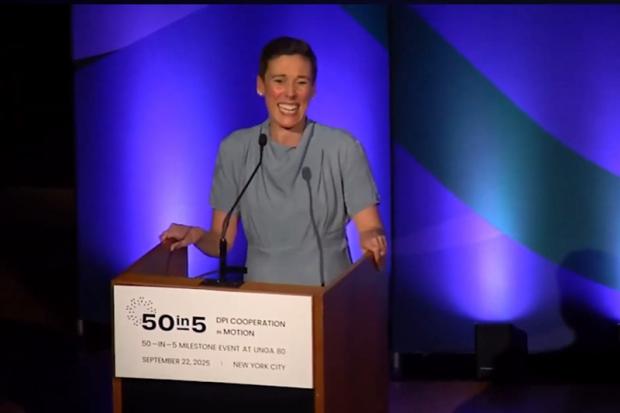
Breaking News
 Who Really Owns America (It's Not Who You Think)
Who Really Owns America (It's Not Who You Think)
 Canada Surrenders Control Of Future Health Crises To WHO With 'Pandemic Agreement': Report
Canada Surrenders Control Of Future Health Crises To WHO With 'Pandemic Agreement': Report
 Retina e-paper promises screens 'visually indistinguishable from reality'
Retina e-paper promises screens 'visually indistinguishable from reality'
 Unearthed photos of 'Egypt's Area 51' expose underground complex sealed off...
Unearthed photos of 'Egypt's Area 51' expose underground complex sealed off...
Top Tech News
 Future of Satellite of Direct to Cellphone
Future of Satellite of Direct to Cellphone
 Amazon goes nuclear with new modular reactor plant
Amazon goes nuclear with new modular reactor plant
 China Is Making 800-Mile EV Batteries. Here's Why America Can't Have Them
China Is Making 800-Mile EV Batteries. Here's Why America Can't Have Them
 China Innovates: Transforming Sand into Paper
China Innovates: Transforming Sand into Paper
 Millions Of America's Teens Are Being Seduced By AI Chatbots
Millions Of America's Teens Are Being Seduced By AI Chatbots
 Transhumanist Scientists Create Embryos From Skin Cells And Sperm
Transhumanist Scientists Create Embryos From Skin Cells And Sperm
 You've Never Seen Tech Like This
You've Never Seen Tech Like This
 Sodium-ion battery breakthrough: CATL's latest innovation allows for 300 mile EVs
Sodium-ion battery breakthrough: CATL's latest innovation allows for 300 mile EVs
 Defending Against Strained Grids, Army To Power US Bases With Micro-Nuke Reactors
Defending Against Strained Grids, Army To Power US Bases With Micro-Nuke Reactors
UN, Gates digital ID, fast payments, data sharing 50-in-5 campaign hits 30 countries

The 50-in-5 campaign to accelerate digital ID, fast payment systems, and data exchanges in 50 countries by 2028 reaches a 30 country milestone.
Launched in November 2023, the 50-in-5 campaign is a joint effort of the United Nations, the Bill and Melinda Gates Foundation, and their partners to rollout out at least one component of Digital Public Infrastructure (DPI) in 50 nations within five years.
DPI is a civic technology stack consisting of three major components: digital ID, fast payment systems, and massive data sharing between public and private entities.
50-in-5 started with 11 first-mover countries, and with the count now at 30 the participating countries include:
Bangladesh, Brazil, Cambodia, Dominican Republic, Estonia, Ethiopia, France, Guatemala, Jamaica, Kazakhstan, Lesotho, Malawi, Mexico, Moldova, Nigeria, Norway, Senegal, Sierra Leone, Singapore, Sri Lanka, South Africa, South Sudan, Somalia, Togo, Trinidad and Tobago, Uganda, Ukraine, Uruguay, Uzbekistan, and Zambia.
The 50-in-5 campaign celebrated its 30-country milestone during a sideline event at the UN General Assembly in New York on September 22.
There, government officials, like Ukraine's deputy prime minister, praised the work of 50-in-5 while the ministers of digital economy from Nigeria and Togo called for an interoperable digital identity system for the entire African continent.
Nigeria's Minister of Communications, Innovation and Digital Economy Bosun Tijani said that each country could build their own digital identity scheme, but that they should all be interoperable with one another — demonstrating both the digital ID and data sharing as good potential use cases for DPI.
"Nations want to maintain their own ID databases, but I think we have a unique opportunity to apply strong data exchange system interoperability," said Tijani.
"I think a digital identity system that can go with you wherever you are going on the African continent would be a fantastic example," he added.

 SpaceX Heat Shield and Starship Mass Production
SpaceX Heat Shield and Starship Mass Production

